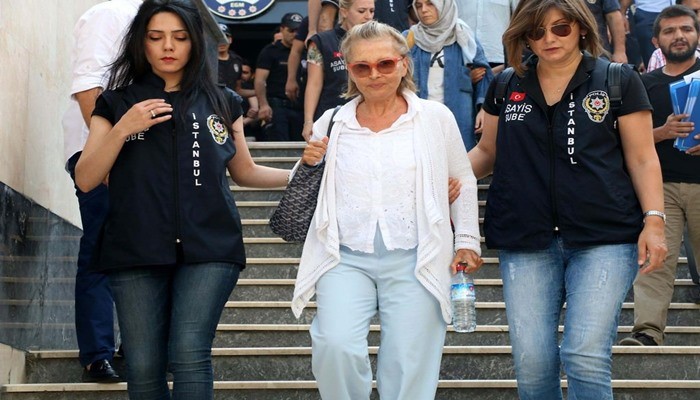The European Court of Human Rights (ECtHR) has ruled in the case of prominent journalist Nazlı Ilıcak that working for media outlets close to the Gülen movement and expressing doubts about the Turkish government’s narrative on an attempted coup are not plausible grounds for terrorism-related charges.
Judgment Ilicak (No. 2) v. Turkey – pre-trial detention of journalist Nazli Ilicak following the attempted coup of 2016 https://t.co/dOChMG24Wq#ECHR #CEDH #ECHRpress
— ECHR CEDH (@ECHR_CEDH) December 14, 2021
The ECtHR has faulted Turkey for violating Ilıcak’s rights to liberty and security as well as freedom of expression, stating that the charges that led to her imprisonment for more than three years are not plausible.
Ilıcak (77), was taken into custody on July 26, 2016, ten days after a failed coup, after which the Turkish government started a crackdown on civil society, purging state institutions and rounding up tens of thousands under the pretext of an anti-coup fight.
Membership in a terrorist organization and participating in the attempted coup were the accusations lodged against Ilıcak, who was later arrested.
The grounds of the charges were that she was working at that time in media outlets considered close to the Gülen movement, a faith-based group accused by Ankara of orchestrating the abortive putsch, and had posted tweets on July 15 and 16, 2016 in which she had questioned government’s coup narrative and expressed doubts that the Gülen movement was behind the attempt.
Ilıcak was initially convicted and sentenced to life imprisonment, but the conviction was overturned by the Supreme Court of Appeals and, after a retrial, she was sentenced to eight years, nine months, this time “for voluntarily aiding and abetting a terrorist organization without holding membership in it.” She was released by the court under judicial supervision in November 2019, and in April 2021 the top appeals court again overturned Ilıcak’s conviction. The criminal proceedings are still ongoing.
The ECtHR issued the ruling by six votes to one and said there had been no plausible reason to suspect Ilıcak of committing the offenses, noting that her writings on which the charges had been based concerned matters of public interest and fell within the scope of freedoms guaranteed by the European Convention on Human Rights.
The ECtHR held that authorities’ accusations of terrorist activities could not be based on the applicant’s work as a journalist in certain media outlets and “on her tweets expressing doubts about the possible perpetrators of the attempted coup.”
The Strasbourg court ordered Turkey to pay Ilıcak 16,000 euros in non-pecuniary damages.
Following the coup attempt in July 2016 that claimed the lives of more than 250 civilians, Turkish President Recep Tayyip Erdoğan and his Justice and Development Party (AKP) government intensified its crackdown on media outlets and journalists critical of it under the pretext of an anti-coup fight.
Turkey, which has dropped precipitously since it was ranked 100th among 139 countries when Reporters Without Borders (RSF) published its first worldwide index in 2002, the year the AKP came to power, was ranked 153rd out of 180 countries in the 2021 World Press Freedom Index.
Crackdown on Gülen movement
Turkey’s AKP government launched a war against the Gülen movement, a worldwide civic initiative inspired by the ideas of Muslim cleric Fethullah Gülen, following corruption investigations in late 2013 that implicated then-prime minister and current President Erdoğan’s close circle.
The war against the movement culminated after the attempted coup because Erdoğan and his AKP government accused the movement of masterminding the abortive putsch and initiated a widespread purge aimed at cleansing sympathizers of the movement from state institutions, dehumanizing its popular figures and putting them in custody.
Although both Gülen and the members of his group strongly deny any involvement in the coup attempt or any terrorist activities, Erdoğan’s AKP has detained a total of 319,587 people while jailing 99,962 over alleged links to the movement as part of a massive purge launched under the pretext of an anti-coup fight, according to the latest Interior Ministry data.

